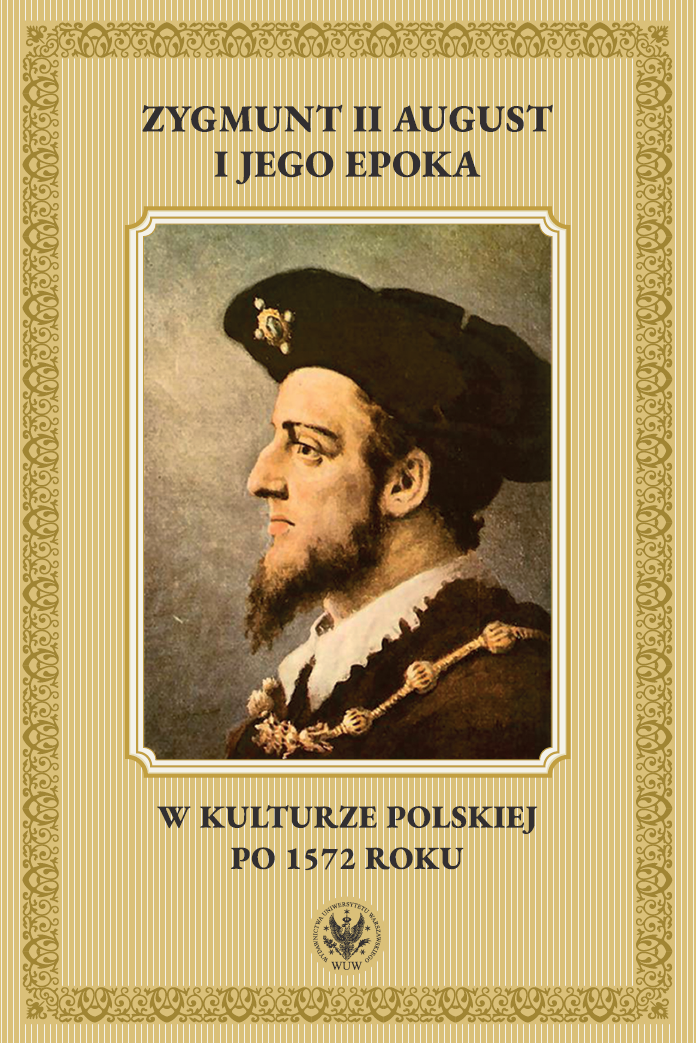Historyka-poety uwagi nad spuścizną po przodkach
Historian and Poet’s Remarks on the Legacy of the Ancestors
A “Character Portrait” of Sigismund II Augustus and the Assessment of His Dynasty in the Historiography of Early 19th Century – Another Attempt at Reading Julian Ursyn Niemcewicz’s "Historiciral Songs"
Author(s): Igor Barkowski
Subject(s): Cultural history, Modern Age, Recent History (1900 till today), 16th Century, 17th Century, 18th Century, 19th Century, Pre-WW I & WW I (1900 -1919), Interwar Period (1920 - 1939), WW II and following years (1940 - 1949), Post-War period (1950 - 1989), Transformation Period (1990 - 2010), Present Times (2010 - today), History of Art
Published by: Wydawnictwa Uniwersytetu Warszawskiego
Keywords: Julian Ursyn Niemcewicz; historiography; Historical Songs; Warsaw Society of Friends of Learning
Summary/Abstract: The article is an attempt at reading "Śpiewy historyczne" ("Historical Songs") by Julian Ursyn Niemcewicz (1816), focused on reading basic historical meanings designed for this cycle by the Warsaw Society of Friends of Learning. Disputing the dominant view on the role of pre-romantic historiosophy in shaping the meaning of the cycle, the author presents three issues. Firstly, Historical Songs is a highly diversified structure; the book consists of 33 lyrical pieces interspersed with historical commentaries in prose. In these historical additions Niemcewicz reveals himself as well-read in the oldest medieval, Renaissance and Enlightenment sources. Above all, he takes great care in using them in a sense consistent with the views of the post-partition heirs of the historical thought of the time of Stanisław August (King of Poland 1764–1795). This observation definitely diminishes the dominant role of the alleged Romantic thought and historiosophy of the 19th century. This is followed by the poem Zygmunt August and Niemcewicz’s commentary. This work – inspired probably by a poem by Jan Kochanowski – has a special place in the cycle. It updates issues close to the Renaissance poet, and at the same time refers to the main problems of Polish historiography emerging in the second half of the 18th century, especially under the influence of Adam Naruszewicz’s The History of the Polish Nation. This judgment is reinforced by reading the historical prose study in Niemcewicz’s "Historical Songs". At the end of the author attempts to present the collection as a component of the Enlightenment historical criticism, inspired mainly by printed sources, and less so by the thinking dominated by the 19th century philosophy of history.
Book: Zygmunt II August i jego epoka w kulturze polskiej po 1572 roku
- Page Range: 121-153
- Page Count: 33
- Publication Year: 2023
- Language: Polish
- Content File-PDF

